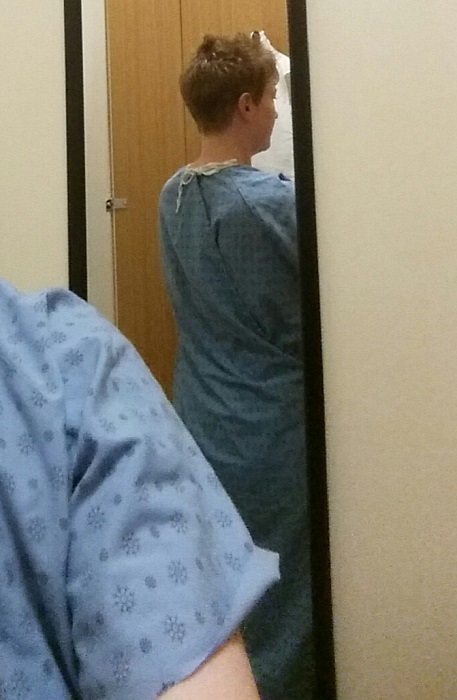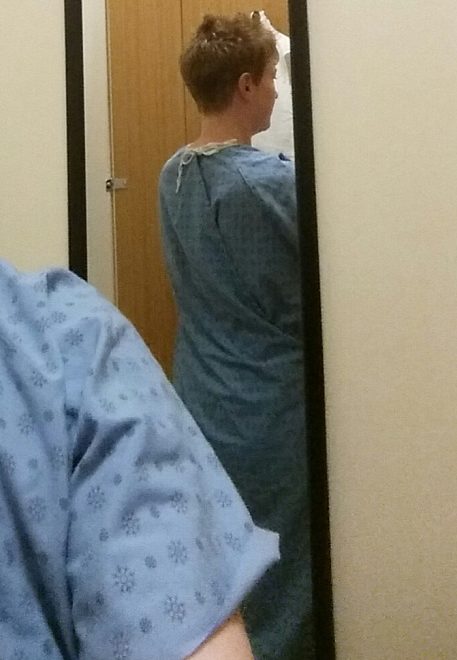There’s usually no cross-posting between this biomedical ethics blog and what I do over on the Twitter micro-blogging site, but I’m going to make an exception today.
Over on Twitter, I just posted a link to an outstandingly important, yet very subtle, article in the BMJ (British Medical Journal). It was published just a few days ago. I’m sharing it here as well, to try to increase the reach of this information – among those of us in bioethics who advocate for patients; whether on an individual, group, or societal level.
First off, I have no conflicts of interest to declare; I was neither involved in this research nor have affiliation to any of the authors or institutions who conducted it.
Next, I’ll admit to a good dose of confirmation bias in my decision to share this particular article (something I plan to do only rarely on this blog). Bias in that these findings fully align with a position I adopted years ago; that we – within the aegis of healthcare – should view patients as experts in the lived experience of their conditions or diseases.
What do I mean by that? Imagine a patient with irritable bowel syndrome (IBS), as distinct from inflammatory bowel disease (IBD; such as colitis or Crohn’s disease). We’ll call our patient John Doe.
John will invariably learn, through lived experience, what triggers his specific symptoms. Perhaps too much alcohol, caffeine, fried foods, insoluble fiber, stress, or certain types of produce. Or too little exercise, or a lack of soluble fiber. Or combinations of multiple factors.
A food diary, or symptom journal, might help John pinpoint triggers for certain specific symptoms or reactions. Ice cream might not trigger a reaction, while frozen yogurt does – or vice-versa.
Sugars might be fine for John, in moderation, while any level of sugar alcohol (e.g. sucralose) triggers immediate and severe onset of symptoms.
We can consider that John’s chronic illness requires a certain level of disease management, as well as symptom management. And a great deal of this management will be handled by John himself; in the multiple decisions and calculations he’ll make each day, in his efforts to prevent symptoms and lessen the impact of this condition on his daily life.
There’s no way that John could feasibly rely on immediate access to a clinician, to make each of these decisions. Nor should he; as a society, we expect John – and millions of patients with other chronic conditions – to self-manage their health issues to a great extent.
Diabetes is an excellent example; patients are expected to measure and track their own blood glucose levels, calculate appropriate doses of insulin, and self-inject the dose they’ve calculated.
These patients become experts in their experience of their own medical condition or disease. Who’ll have a better grasp of how much a certain duration and intensity of a given type of exercise will affect a specific patient’s blood glucose level; the patient or their treating physician?
Would a clinician or a chronic IBS patient be better qualified to state which symptom triggers were the most important – for that individual patient?

For the past few years, I’ve been promoting the idea that each patient is in many ways a specialist. In how a particular disease affects their own body. In some instances, this might even extend to a patient knowing how their body will react to certain classes of treatments; based on their lived experience of their disease.
And I’m certain that many of us have witnessed situations in which a patient seemed more knowledgeable about their medical condition(s) than the clinicians involved in their care.
I’ve often commented that patients, particularly those with an interest in the general sciences, sometimes seem to be better informed about certain diseases than many clinicians and physicians. But the proof of this, the medical evidence, was lacking. Until now…
The BMJ has just published a qualitative study article, out of King’s College London: “What happens when patients know more than their doctors? Experiences of health interactions after diabetes patient education: A qualitative patient-led study”.
This study provided extensive training to patients with diabetes; physician-level training in terms of specific elements of their disease. They were taught how to interpret not only their blood glucose measurements, but also patterns in their self-monitoring results over time…
Image of a medical journal headline; “BMJ: What happens when patients know more than their doctors?” https://bmjopen.bmj.com/content/3/11/e003583
They learned to make allowances for, to calculate, the interactions of different types of insulin and foods; for example to estimate the total glycemic load of a complete meal.
These patients with diabetes were taught about the impact of exercise, stress, hormones, and alcohol on blood glucose levels. And how to deal with specific issues such as rising blood glucose during periods of (other) illness, or while travelling.
Further, this patient cohort was provided with instruction in 3 specific principles (and behaviours) they were to use in their interactions with other healthcare professionals; patient
- Empowerment
- Expertise
- Independence
Each of these patients living with diabetes was:
gently challenged to think of themselves differently; as an empowered and expert patient, no longer dependent on doctors for decisions, but able to talk about their treatment requirements with healthcare professionals as an equal”.(1)
The training provided to these patients was purposely more in-depth than the diabetes knowledge of many generalist physicians. And what do you think happened, when these disease-expert patients then had to deal with non-specialist clinicians in their daily lives?
In many cases, these patients’ expertise was dismissed by their treating healthcare professionals – who had not been involved in their patient’ training. And this was despite the fact that the patients’ disease education had been provided by a respected health organization.
The researchers stated that the findings of this study apply well beyond the borders of diabetes, to many chronic conditions which require a high level of patient knowledge or that they self-manage their disease and/or symptoms:
findings of the study are applicable across the board: it has offered a new insight into the potential difficulties faced by highly health-literate patients, and suggests a need for serious reflection on existing practices, power hierarchies and training paradigms within healthcare”.(1)
The knowledge and disease experience of these trained patient experts was… dismissed. By physicians, and occasionally nurses, who often had power over the patients in some way; examples given included refusal to renew prescriptions or to allow an order for medical supplies that the patient required for appropriate self-management of their diabetes.
The researchers noted that:
Patients who have in-depth knowledge of their condition encounter problems when their expertise is seen as inappropriate in standard healthcare interactions, and expertise taught to patients in one branch of medicine can be considered non-compliant by those who are not specialists in that field.
Although patient education can give people confidence in their own self-management skills, it cannot solve the power imbalance that remains when a generalist healthcare professional, however well meaning, blocks access to medication and supplies needed to manage chronic diseases successfully.
There is a role for those involved in primary and hospital care, including those supporting and training healthcare professionals, to recognise these problems and find ways to acknowledge and respect chronic patients’ biomedical and practical expertise.”(1)
The power imbalance noted in these paragraphs is something that we – as bioethics professionals – should be working to rectify. For too long the medical and research establishments have viewed patients as bystanders – to be paternalistically protected – rather than as fully participating partners in their healthcare.
With the advent and popularity of social media websites, and growing access to reliable medical information via the Internet (World Wide Web; www), patients today are becoming increasingly well-informed.
That old paternalistic status quo will have to go, and soon; all of us working in healthcare should not only accept the reality of the expert-patient – we should celebrate and embrace it. Only then will healthcare become truly focused on those who should be at its heart; our patients!
*** Please read – and share – this BMJ article (Internet link below). ***
References:
(1) Snow R, Humphrey C, Sandall J. What happens when patients know more than their doctors? Experiences of health interactions after diabetes patient education: a qualitative patient-led study. BMJ Open. 2013;3:e003583. doi: 10.1136/bmjopen-2013-003583. Accessed 20 Nov 2013:
https://bmjopen.bmj.com/content/3/11/e003583

